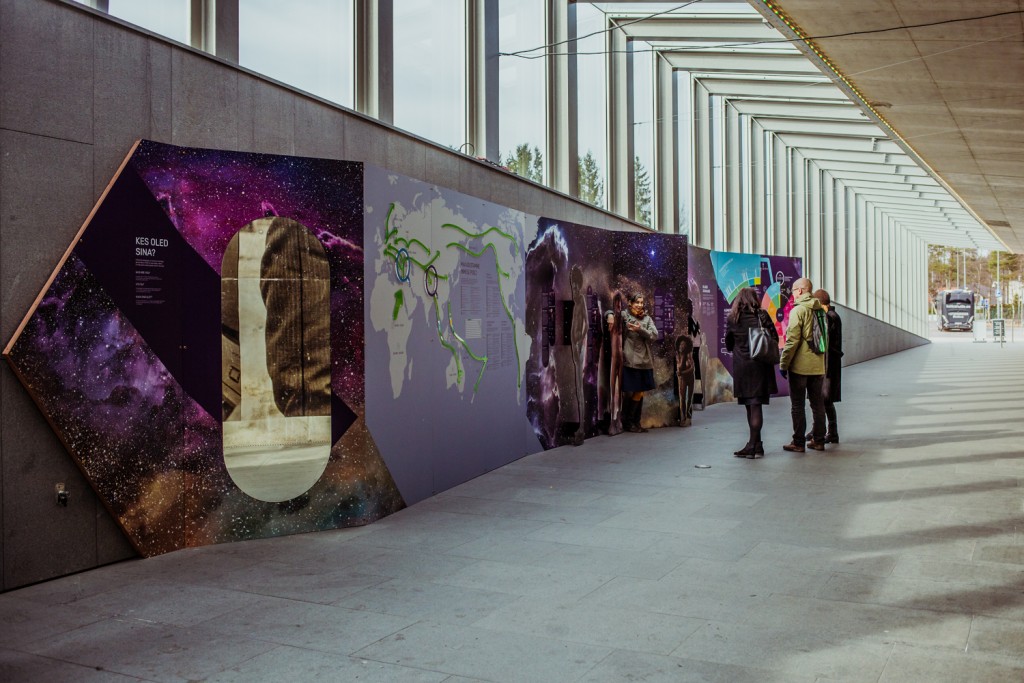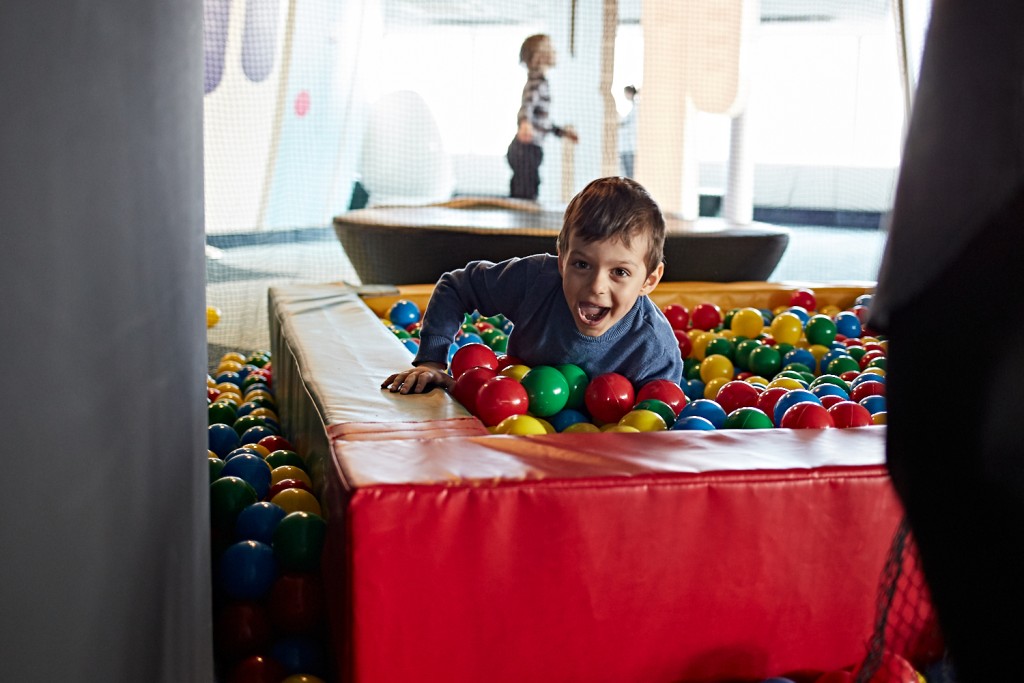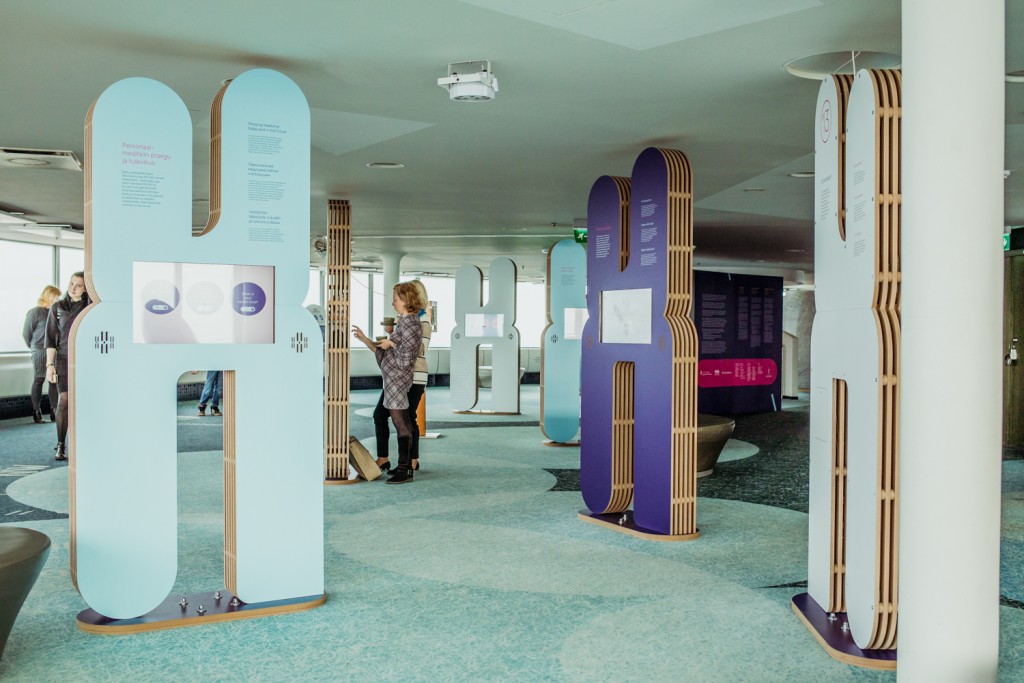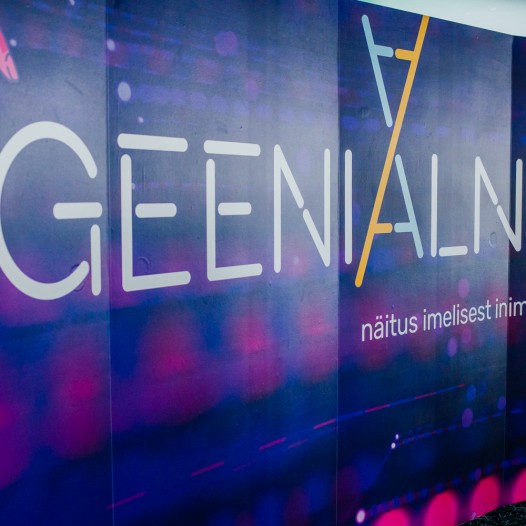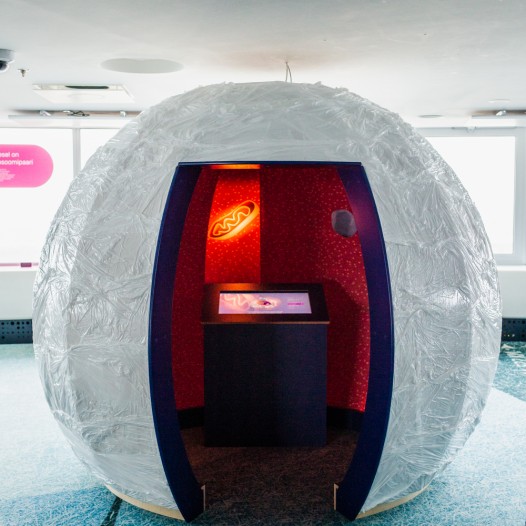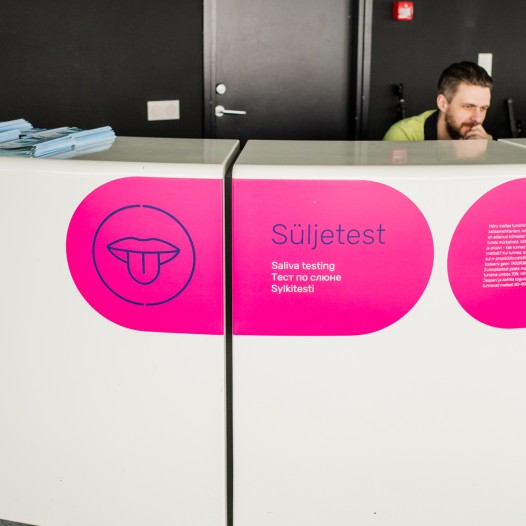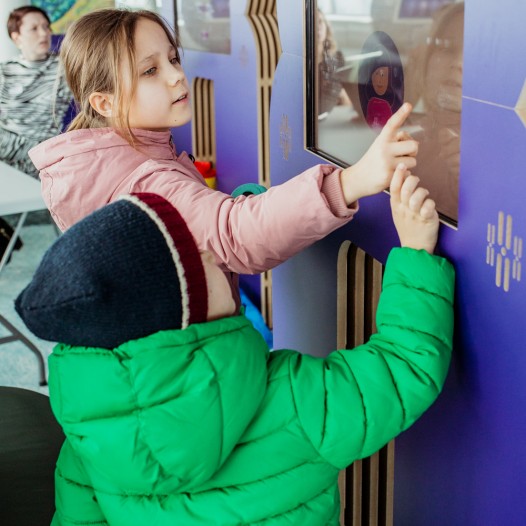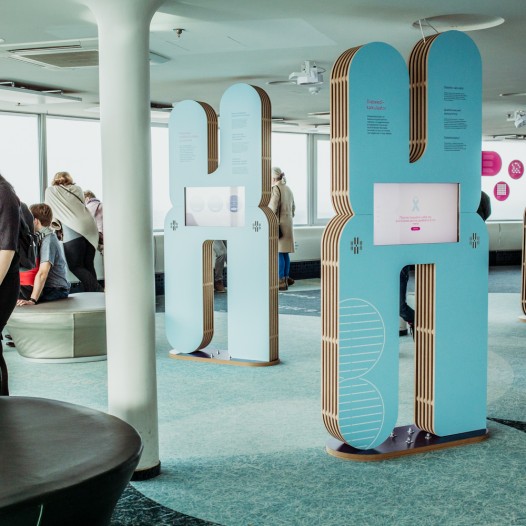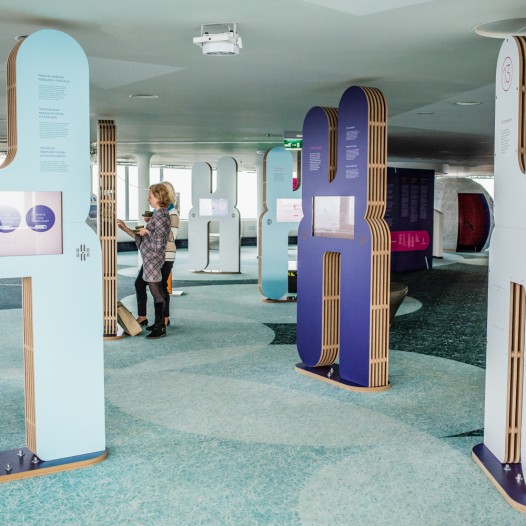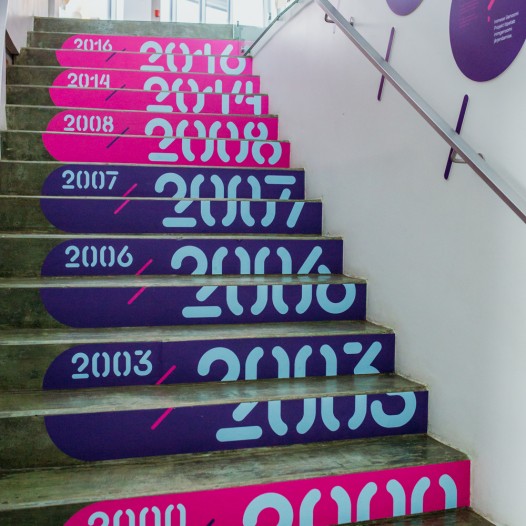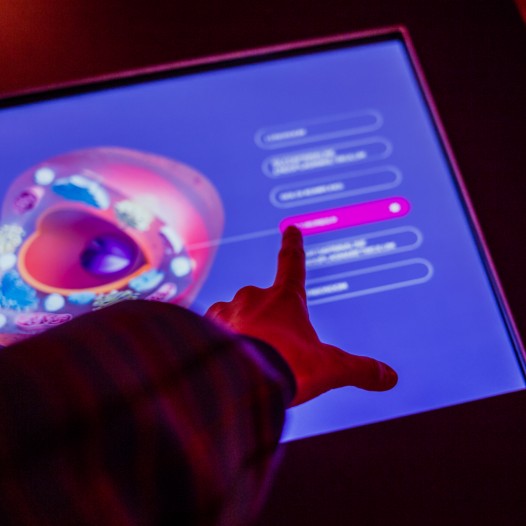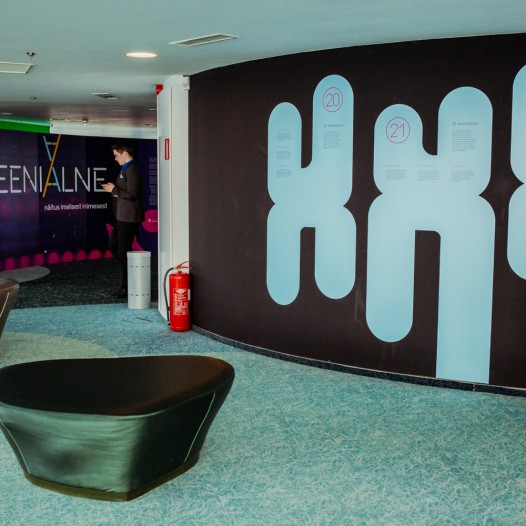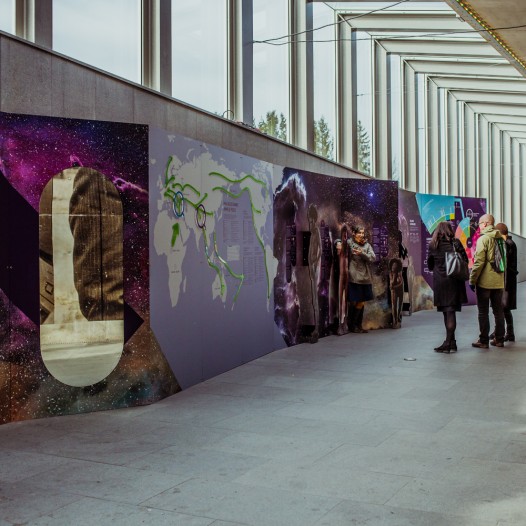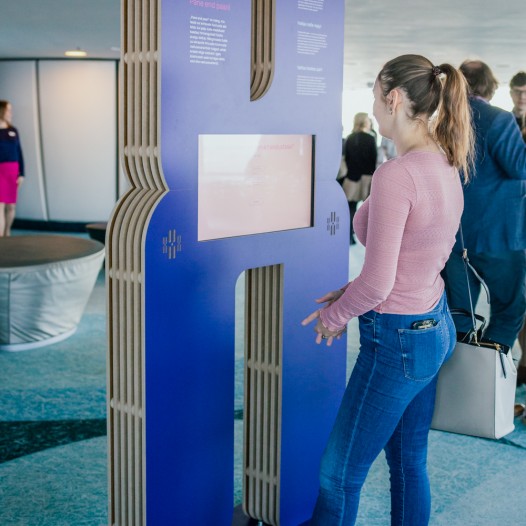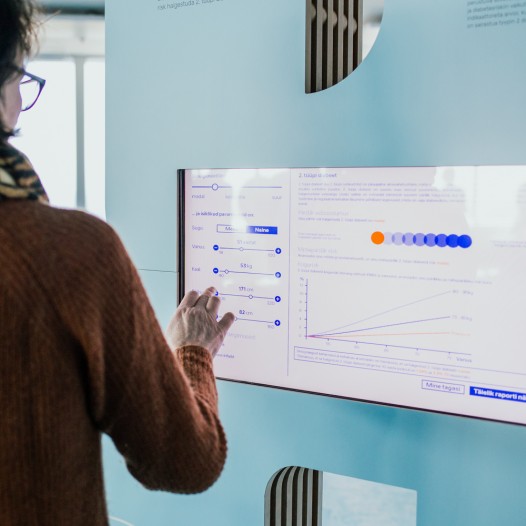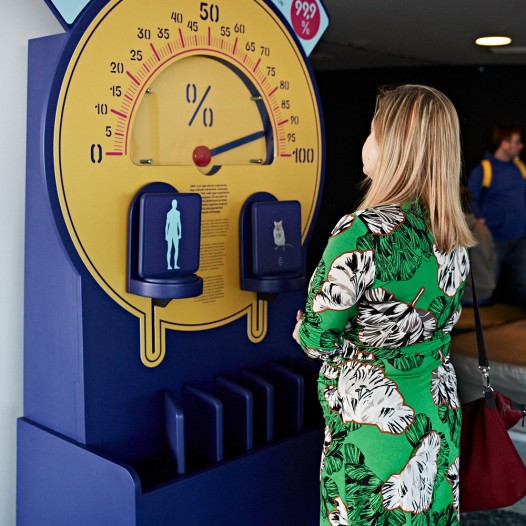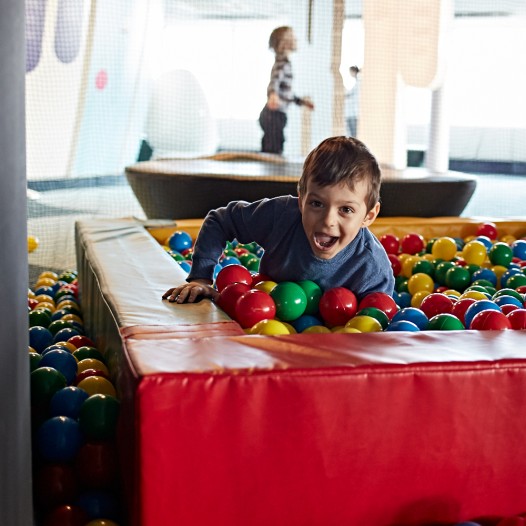Exhibition “GENE-IUS”
Date
29.03.2019 - 31.12.2022
GENE-IUS
An exhibition of humanity’s uniqueness
The exhibition was closed in February 2023.
The exhibition ”GENE-IUS” takes us far into the past, deep within, and hopefully forward. Genes are a part of our inner space which you cannot negotiate. Genes determine our appearance and also partly what our health will be like during our lives. The journey of investigating our genes is full of wonderful discoveries and is also useful!
Our journey begins billions of years ago, when the planet Earth emerged. The Era Clock shows that the direct ancestors of today’s humans arrived on the stage of Earth’s history just a moment ago. But their appearance also brought monumental biological and cultural changes, and quickly spread across the continents.
Step inside a cell and see what you can find there. Keep track of a volunteer donor’s 22nd chromosome. Find out if you may have an increased risk of falling ill with type 2 diabetes or if you like the taste of Brussels sprouts. Let the waves of the DNA sequencing ball ocean wash over your head!
In order to find out what an individual’s genetic disease risks are, we need to describe the genetic patterns of very many humans. The Estonian Genome Center at the University of Tartu has accomplished a significant achievement with the help of the people of Estonia –the creation of a unique database containing 157,000 gene samples by the end of 2018. Globally, this gene database, which covers 15% (!) of the adult population of the country, is one of the largest. Every day, new people join the Gene Bank!
Future medicine will be completely different from today’s medicine because the genes will start to “speak” to us more and more. Personal medicine helps us:
- to diagnose and treat rare genetic diseases;
- in the precision treatment of oncological diseases;
- to calculate the hereditary risk scores of frequent diseases;
- in pharmacogenetics, which aims to determine the most suitable drugs for each person.
Usually, we start caring about our health more fervently after we fall ill. However, in a car, we fasten the seatbelt when we start driving, and not after an accident. Personal medicine should be the seatbelt that allows us to take care of our health before the first signs of a disease. Genes are not responsible for everything, and they do not work alone! Our environment and lifestyles—the food we eat, the air we breathe and the amount we exercise—have a significant impact on things that are determined by genes. In Estonia, there are plans to start using the genetic data in ordinary medicine, so that the personal gene map of each donor would help make health decisions specifically for that person. It will help us be healthy and happy for a longer time.
Exhibition team
Compiler: University of Tartu Institute of Genomics: Estonian Genome Center and Estonian Biocentre
Design: Exporabbit
Screen solutions: TM Development OÜ
Construction: Red Hat Group Design OÜ
Project Managers: Annely Allik (Estonian Genome Center), Hälys Laanemäe (Tallinn TV Tower), Maaja Kuiv (Exporabbit)
